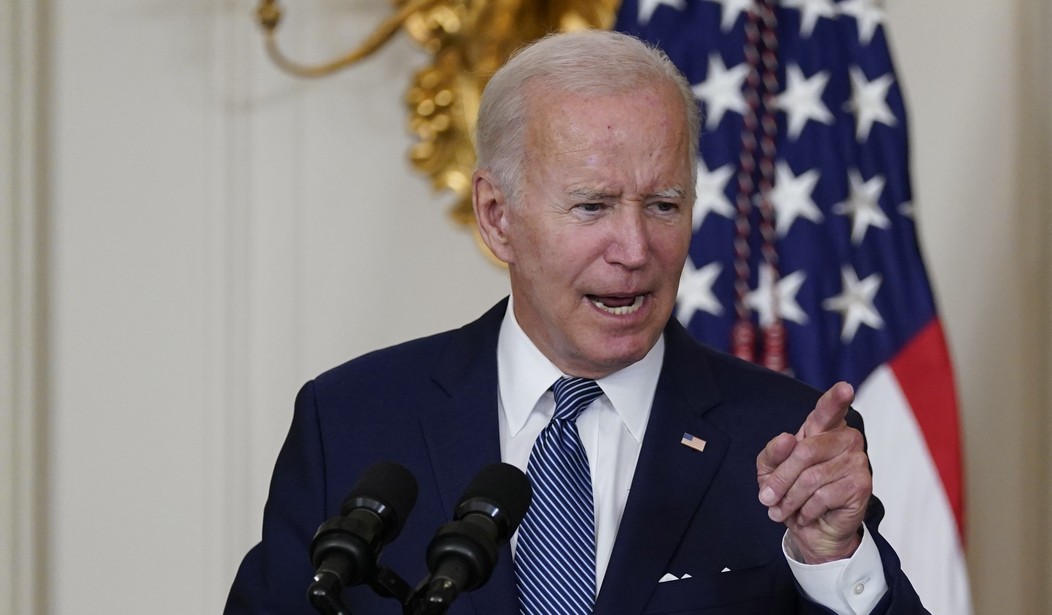On Wednesday, the White House released the details of its so-called student debt "cancelation" plan. President Joe Biden also gave remarks about the announcement later that day. While the president and White House Press Secretary Karine Jean-Pierre failed to give a satisfactory answer about the cost, the Committee for a Responsible Budget (CRFB) has estimated that it will cost between $440 billion and $600 billion over the next 10 years.
??NEW: @POTUS today announced student loan changes – including cancellation of up to $20k for some borrowers – that will cost $440–$600 billion over the next ten years.
— CRFB.org (@BudgetHawks) August 24, 2022
That brings the total cost of pandemic-era student loan actions to ~$800 billion.
??https://t.co/C8yDsyyIlr. pic.twitter.com/wGI415QcM5
Wednesday's release from CRFB, a non-partisan group, noted that it has come to a rough estimate of $500 billion.
The release also spells trouble for any perceived benefits from the "Inflation Reduction Act," which the organization had positive things to say about. The CRFB's reference to a law it had praised makes its concerns even more potent.
From this release, with added emphasis:
The changes announced today will likely cost more than double the amount saved through the recently passed Inflation Reduction Act, completely eliminating any disinflationary benefit from the bill. We will be releasing an inflation estimate of these student debt changes in a subsequent analysis, but the package is likely to increase inflation by more than a year-long extension of the pause, which we previously estimated would add up to 20 basis points to the Personal Consumption Expenditure inflation rate. The proposed loan changes also do nothing to reduce the amount of borrowing moving forward, setting up a future administration to be called on to cancel debt again.
It is extremely troubling to see the Administration reverse the legislative progress made on deficit reduction. It is long past time that student debt repayments resume, and now it is even more important for policymakers to enact changes that reduce deficits through spending reductions and revenue increases in order to put the national debt on a downward sustainable path.
Recommended
The organization also released a statement from its president, Maya MacGuineas, which emphasized her disappointment with the move. Her statement began:
This announcement is gallingly reckless – with the national debt approaching record levels and inflation surging, it will make both worse. Policymakers have already spent $300 billion on student debt relief—none of it paid for, and this would add another $400 to $600 billion, again, none of it paid for. This action by the White House is completely at odds with their talk of deficit reduction. It could add twice as much to the deficit as was just saved from the Inflation Reduction Act, completely eliminating any deficit reduction and then some. With the stroke of a pen, the President undid a year's worth of work on the fiscal front.
Many progressive politicians and organization have referenced student loan debt in the context of how it affects lower-income families as well as minorities. The president in his Wednesday remarks made mention of how "the burden is especially heavy on Black and Hispanic borrowers, who on average have less family wealth to pay for it."
A Thursday post by CRFB also addressed previous student debt proposals, which actually turn out to benefit upper-class families. "The student debt cancellation proposals that have previously been analyzed are regressive because they provide a disproportionate benefit to higher income and wealthier households. The main reason for this is that people who go to college and beyond are much more likely to earn high incomes and have high lifetime wealth compared to people who don’t go to college," the post read.
A Brookings report is also mentioned, which found that "the top 20 percent of white non-Hispanic households by lifetime wealth hold 25 percent of all student debt and hold more student debt than all Black/African American households combined. This shows that debt cancellation disproportionately benefits white, wealthier households because those are the people most likely to owe and be paying down their debt."
The post did acknowledge that Biden's recently announced proposal could be "less regressive" though and that "it's not clear at this time how the announced Biden cancellation policy affects the racial wealth gaps."

























Join the conversation as a VIP Member